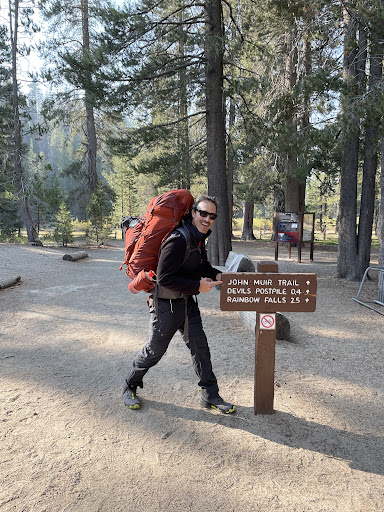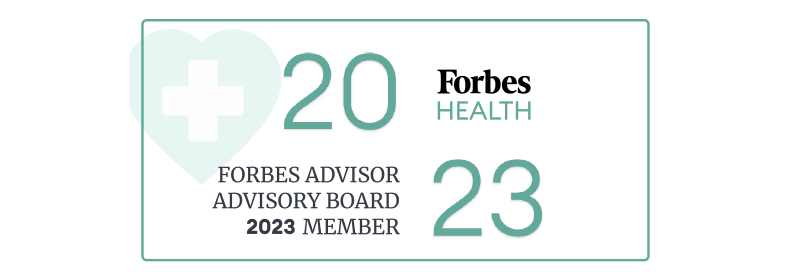Everybody needs beauty as well as bread, places to play in and pray in, where nature may heal and give strength to body and soul alike. – John Muir, The Yosemite (1912), page 256.
Last summer, my son and I did a 60-mile backpacking trip along the John Muir Trail, hiking from Devil’s Postpile National Monument, near Mammoth Lakes, ending in Yosemite Valley. It was profound. In fact, it has taken me weeks to really digest the impact. Of course, having that time with my son was immensely meaningful and fun. And the time we had to connect with each other was part of the stimulation for my last blog post on the importance and even the health benefits of human connection.
But it was also the connection with nature that struck me as equally powerful – on my physical, mental and spiritual health. I am not a rabid outdoorsman, and I had never camped out for more than a couple of nights, usually car camping – when you don’t have to carry all of your provisions with you. To be honest, I sort of rolled my eyes when my integrative medicine colleagues would write about the benefits of Forest Bathing. It just sounded so “woo-woo” and unscientific.
Our hike surprised me in how much it brought out my passion for the wild and the understanding of how much we need it. Yes – we need the wild. We need the ability to be in nature. Since the trip, I’ve done some looking into how much this has been proven – that being in nature actually is important for our health and well-being. It turns out, there is very respected and rigorous science backing up the connection.

One notable large scientific study from the European Centre for Environment and Human Health of 20,000 people published in the journal Nature showed that spending time in natural environments significantly increased self-reported good health and senses of well-being. It didn’t matter how that time was spent – it could have been exercising or not, all at once or spread out over the course of the week, but the essential factor was time. The benefits were apparent after 120 minutes a week of being in a natural environment. These benefits were shown across socioeconomic groups and among people with chronic illness or not, with impacts on physical and psychological well-being.
This is not new, but the science on the link between good health and exposure to nature is blossoming (forgive the pun!). Back in 2005, journalist Richard Louv wrote the book Last Child in the Woods in which he coined the phrase “Nature Deficit Disorder”. Since then, the concept has taken hold and been proven to be a real issue, backed up by almost 1000 different studies showing that, as Louv says,
“nature is not only nice to have, but it’s a have-to-have for physical health and cognitive functioning.”
An extensive review was published recently showing positive associations between nature exposure and many health conditions – both physical and mental.
Health Benefits of Connecting With Nature
Here are some of the health benefits of connecting with nature that have been shown in scientific studies:
- Lower blood pressure
- Lower stress hormone levels
- Reduce nervous system arousal
- Enhance immune system function
- Increase self-esteem
- Reduce anxiety
- Improve mood
- Improved sleep
- Reduced risk of cardiovascular disease
There are not many other interventions I can recommend as a physician that does all of this – especially at low cost and with minimal side effects (other than perhaps a mosquito bite or sunburn).
Health Benefits of Exercise
But, you may ask, doesn’t exercise do all of these things?
My colleagues and I routinely promote the health benefits of exercise, but I do worry about how many of us are following this advice in a gym or on a treadmill indoors. Don’t get me wrong – I’m glad to see gyms reopening after the massive shutdowns with COVID, but there are benefits to being outside that we are missing out in. Instead of heading to the gym, try heading to the park, beach or hiking trail once a week. You can get the benefits of exercise AND nature, compounding the benefits, For example, a Stanford study found that people who walked for 90 minutes in a natural area had decreased activity in parts of the brain associated with depression as compared to those who walked for 90 minutes in a high-traffic urban setting.
Why is Nature Good for Your Health?
Many plausible hypotheses have emerged.
One accepted notion is the understanding that living in modern urban areas is stressful, and we know that chronic stress can be harmful to our health. One way living and working in close proximity to others and being indoors is stressful is through the need for effortful, focused attention. Have you ever noticed that when you are outside, even when you work outside, there is a greater sense of ease and perhaps even of light, pleasant distractibility? When out in nature, it has been shown that we generally pay attention more broadly and in a less effortful way, leading to a more relaxed body and mind.
It has also been shown that exposure to nature itself, even viewing scenes from nature, reduces anger, fear and stress. Research done in hospitals has found that even a simple plant in a room can have a significant impact on healing. One study showed that patients who underwent gallbladder surgery reported less pain if they had a view of trees as compared to those who didn’t.
Ecopsychology
The stress-reducing impact of nature explains a lot of the health benefits, given the proven linkages between stress and both physical and mental health. Regarding nature’s impact on the latter, the field of ecopsychology has emerged given the strong connections. Interestingly, the shadow side of this emerging field looks at the evidence that fear of climate change can invoke feelings of anxiety.
Conclusion
Having described some of the health benefits of going wild, It’s important to know you don’t need to do a 5-day backpacking trip or even any hiking at all in order to get some of the benefits of nature.
Remember, the European study mentioned above showed just 120 minutes a week led to significant health benefits – that’s less than 20 minutes a day on average.
Here are some simple ideas for making sure you incorporate nature and wildness into your life.
- Take your regular exercise routine outdoors once or twice a week.
- Check out the AllTrails app to look for hikes in your area
- Head to a spot outside to journal, sketch, watercolor or meditate once each week
- Try gardening; start with a small plot and head to a nursery for some advice on where to start.
- Have your morning cup of coffee or tea outside, when the weather permits. This way you grab your dose of nature along with your caffeine.
It’s all about connection to nature in any way that works for you. Your health will benefit from it.
Are you getting the nutrients you need for long-term health? Download my Top 10 Supplements For Men PDF to learn about the most critical supplements you need.
Myles Spar, MD, MPH is board certified in Internal Medicine and in Integrative Medicine. As a clinician, teacher and researcher on faculty of the top Integrative Medical Center in the U.S., he has led the charge for a more proactive, holistic and personalized approach to care that focuses on cutting edge technology and preventative care. Dr. Spar has been a consultant with the NBA, presented a TEDx Talk, appeared on national television, and been featured in publications such as the Men’s Journal and the Los Angeles Times. He is National Director and V.P. of Medical Services for AndHealth, a digital health company utilizing lifestyle medicine approaches to reverse chronic illness. He is available on a limited basis to consult with individual patients interested in a personalized approach to optimal performance and health.



